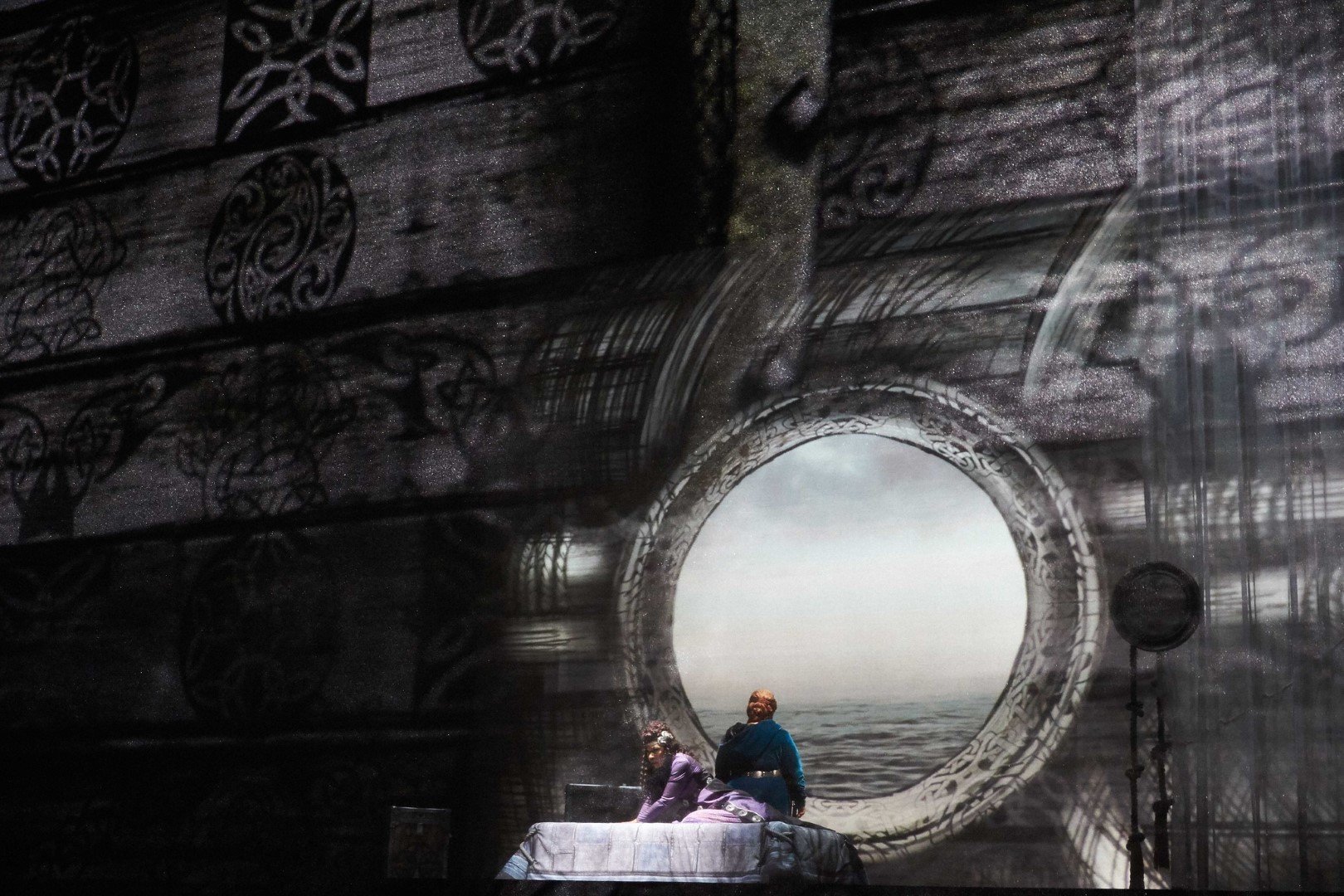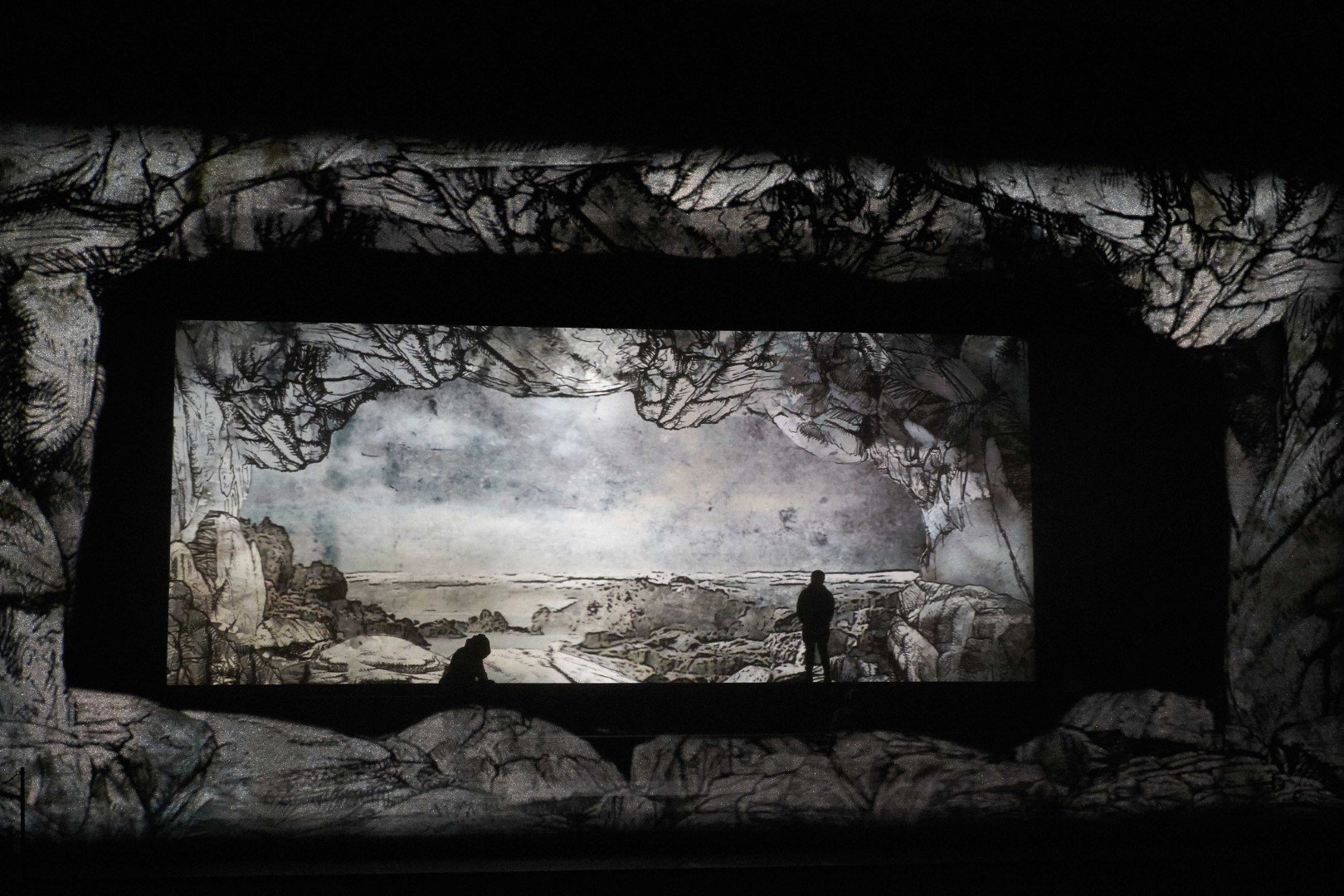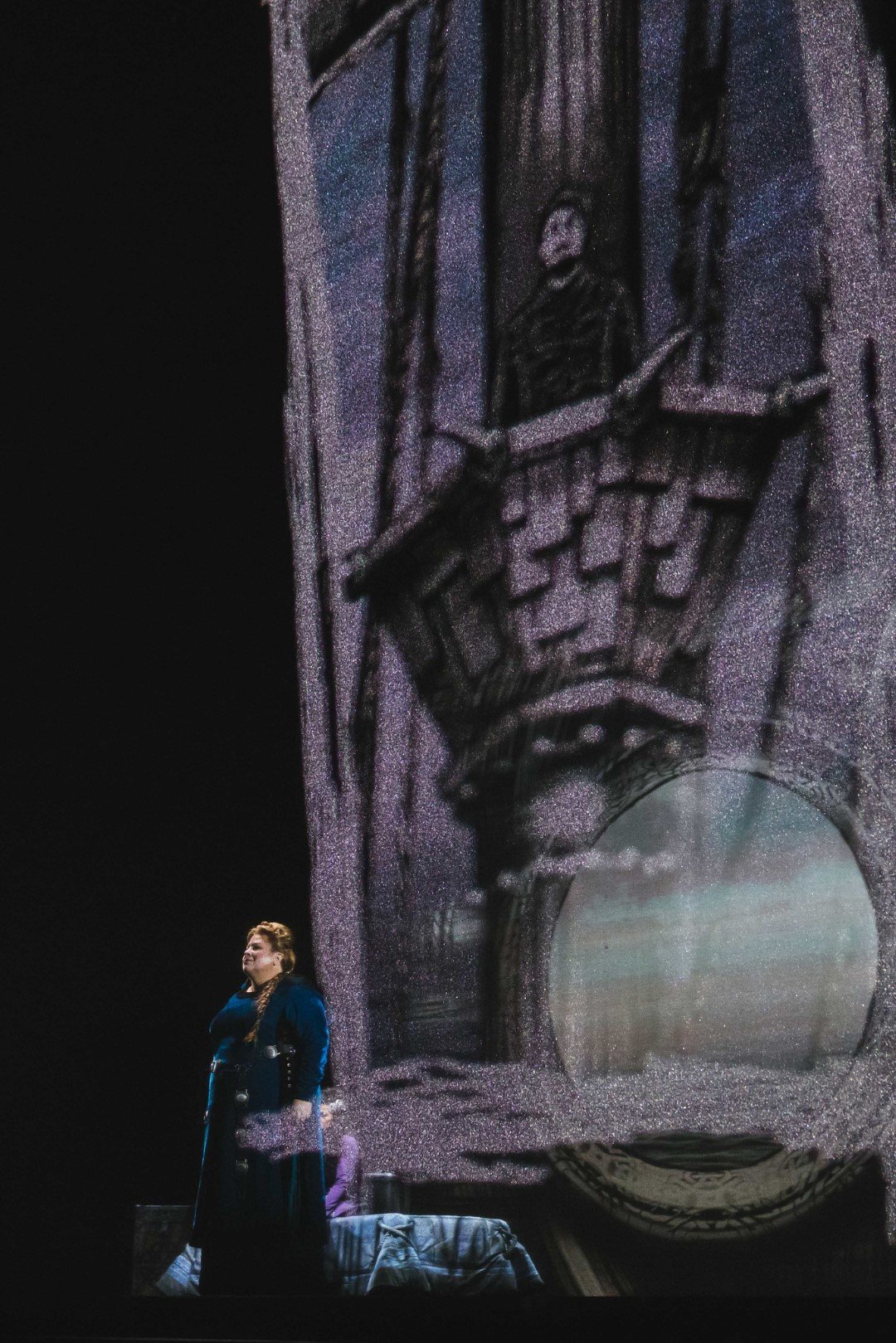Seattle’s Beautiful ‘Tristan und Isolde’ Is a Vocal and Musical Feast
/By Truman C. Wang
10/29/2022
Photo credit: Seattle Opera
Tristan und Isolde at Seattle Opera seems to re-run in a twelve-year cycle. Wagner’s Gesumtkunstwerk love-tragedy enjoyed the vocal splendors of Jane Eaglen and Ben Heppner in 1998, Clifton Forbis and Annalena Persson (“the greatest Isolde”, proclaimed then general director Speight Jenkins) in 2010. The latter production, staged by Peter Kazaras, suffered from directorial ‘concept’ at odds with Wagner’s stage directions.
The current 2022 production comes to Seattle from the Teatro Argentino de la Plata outside Buenos Aires. The official company press release quotes stage director Marcelo Lombardero, “I opted for a visual framework inspired by the style of fantasy comic book illustrations...Utilizing projected drawings, videography, and animation, the scenic design creates an intentionally un-realistic style that combines elements from the Middle Ages, the Romantic period, and our own time." In other words, this beautiful, often visually mesmerizing production should appeal to old-time Wagnerites as well as young Comic-Con fans. The auditorium of the McCaw Hall was jam-packed at this Sunday, October 23 matinee performance.
The Argentinean production is as brilliantly creative as it is faithful to Wagner’s intentions, save for a couple of minor directorial oddities (such as having Brangäne sing her warning onstage rather than offstage during the lovers’ Act II duet, upsetting the vocal-orchestral balance and the ethereal effect of a warning voice from the outer world which the lovers have forgotten.) The desolate scenery of Act III is exactly as prescribed by Wagner’s stage directions: “the whole place suggests the absence of a master; it is ill-tended, in places overgrown, and in ruinous decay.” More than once during the opera, I was reminded of the Valkyries Act 3 I saw in July at the Hollywood Bowl, where director Yuval Sharon used hi-tech CGI wizardry to faithfully recreate the composer’s intentions.
Heidi Melton, a memorable Third Norn/Gutune in the 2017 Houston Götterdämmerung that I saw, was a splendid Isolde here – her gleaming, luminous tone lacked only that extra octane to soar above the final Liebestod climax. Heldentenor Stefan Vinke was a highly capable Tristan, his notes and words clear, his acting believable. Mezzo-soprano Amber Wagner’s Brangäne nearly stole every scene she’s in from her mistress, with her sumptuous tone and dramatic utterance. Bass Morris Robinson was disappointing as a sonorous but wooly King Marke. Ryan McKinny’s Kurwenal and Viktor Antipenko’s Melot dispatched their vocal and physical duties well.
Jordan de Souza conducted with a compelling fusion of piety, pathos and passion. If the bass in the Act I prelude sounded a bit weak, it was likely due to the acoustics of the McCaw Hall which tends to be overly bright and top-heavy. The sound in the hall, overall, was beautifully crisp and detailed, revealing the fine playing by the Seattle Symphony: the grieving oboe that accompanied Brangäne’s “Oh utmost grief!”, the foreboding trombones at the mention of the death potion, Tristan’s imperious entrance into Isolde’s chamber, and last but not least, the magical harp chords against a background of lush strings after the lovers drink their ‘magic potion’. Happily, the director chose not to mime the orchestral preludes, as is obligatory in many opera productions today, allowing the music to speak for itself and the audience to contemplate on the music drama that is to unfold.
One more performance of Tristan und Isolde remains, on October 29. Watch Jonathan Dean’s excellent pre-opera talk on Youtube: https://youtu.be/rl59oHbykds
Truman C. Wang is Editor-in-Chief of Classical Voice, whose articles have appeared in the Pasadena Star-News, San Gabriel Valley Tribune, other Southern California publications, as well as the Hawaiian Chinese Daily. He studied Integrative Biology and Music at U.C. Berkeley.





